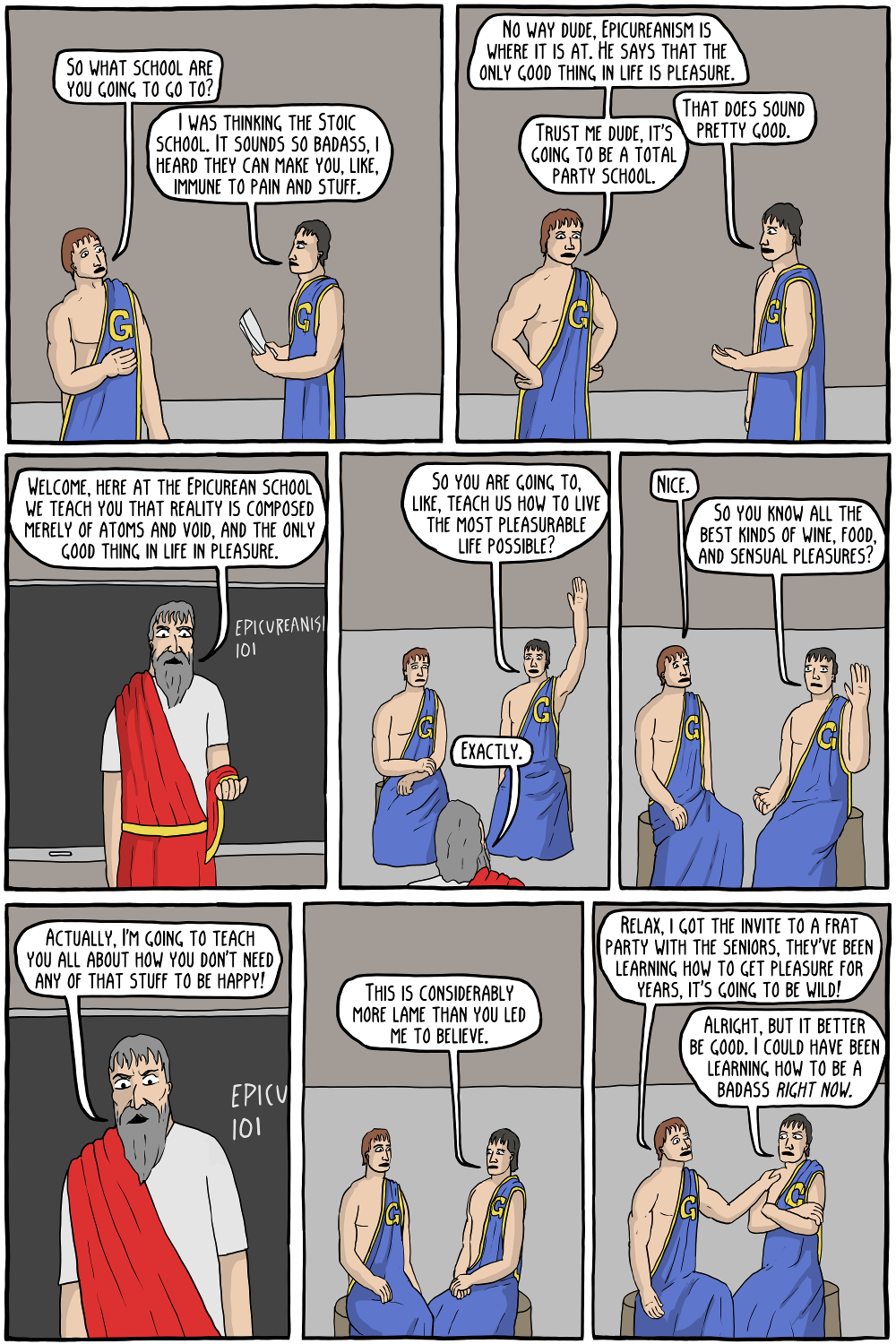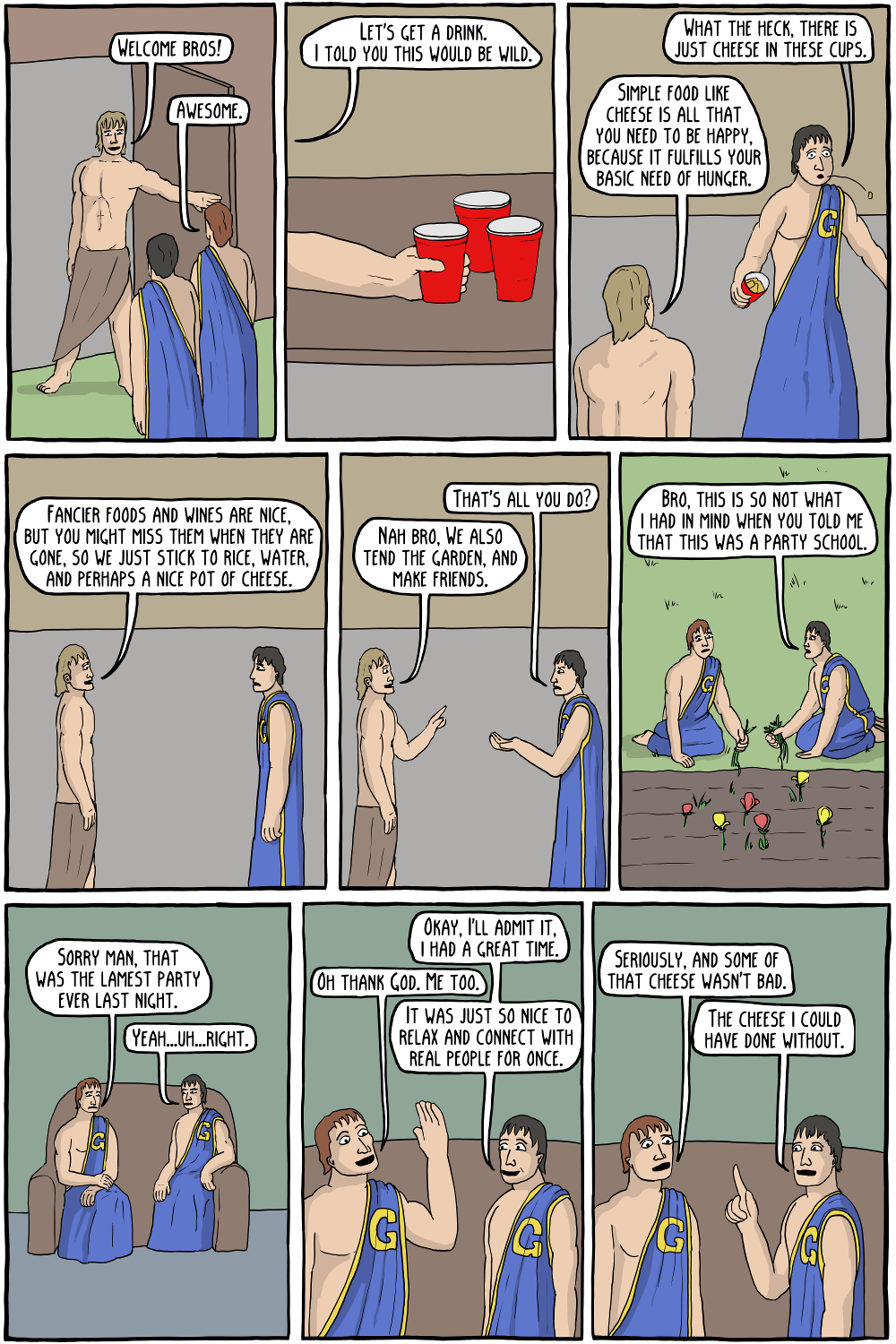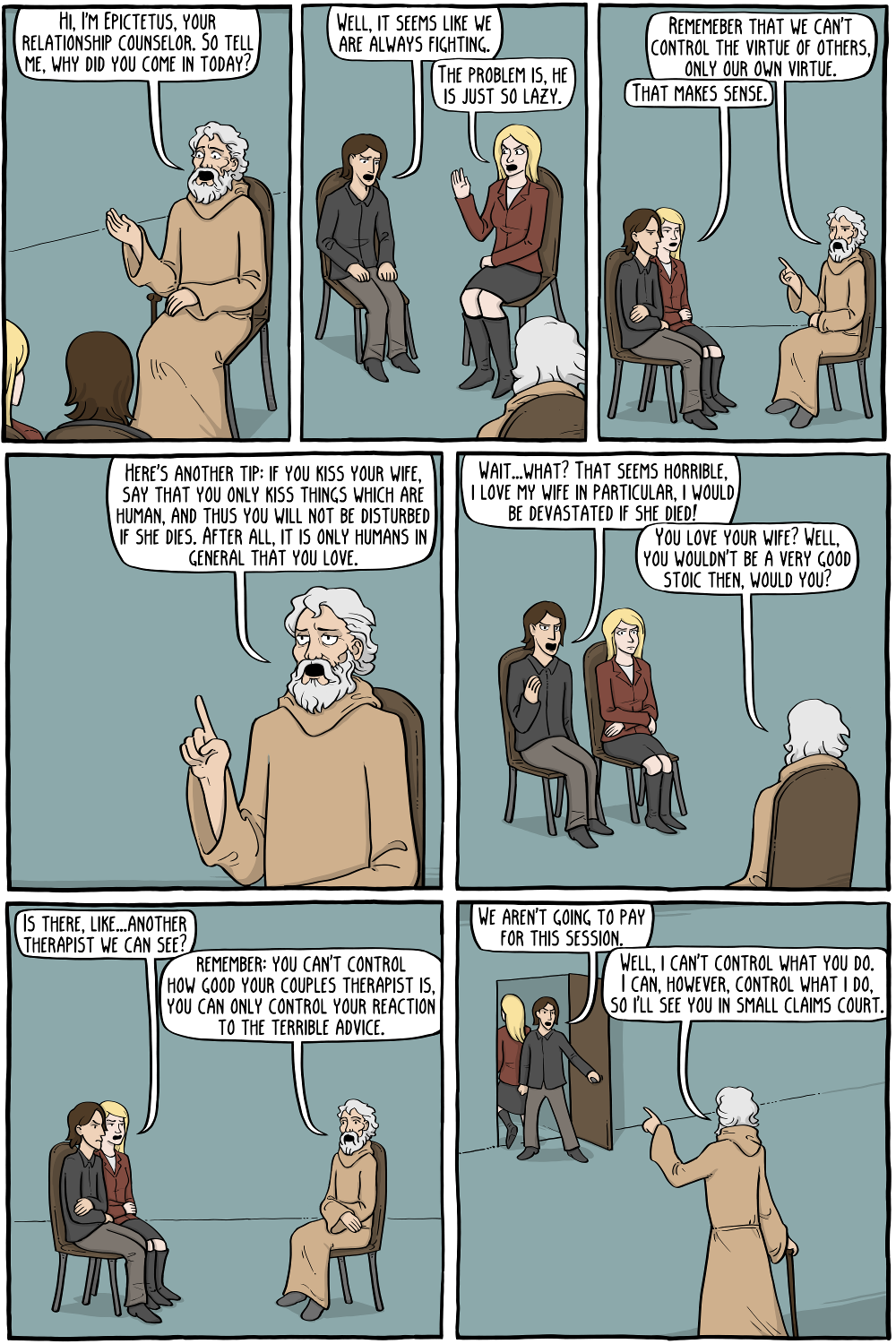A Stoic meditation an Epicurean can love:
""What's left to be prized? This, I think—to limit our action or inaction to only what's in keeping with the needs of our own preparation . . . it's what the exertions of education and teaching are all about—here is the thing to be prized! If you hold this firmly, you'll stop trying to get yourself all the other things. . . . If you don't, you won't be free, self-sufficient, or liberated from passion, but necessarily full of envy, jealousy, and suspicion for any who have the power to take them, and you'll plot against those who do have what you prize. . . . But by having some self-respect for your own mind and prizing it, you will please yourself and be in better harmony with your fellow human beings, and more in tune with the gods—praising everything they have set in order and allotted you."—MARCUS AURELIUS, MEDITATIONS, 6.16.2b–4a
Warren Buffett, whose net worth is approximately $ 65 billion, lives in the same house he bought in 1958 for $ 31,500. John Urschel, a lineman for the Baltimore Ravens, makes millions but manages to live on $ 25,000 a year. San Antonio Spurs star Kawhi Leonard gets around in the 1997 Chevy Tahoe he's had since he was a teenager, even with a contract worth some $ 94 million. Why? It's not because these men are cheap. It's because the things that matter to them are cheap.
Neither Buffett nor Urschel nor Leonard ended up this way by accident. Their lifestyle is the result of prioritizing. They cultivate interests that are decidedly below their financial means, and as a result, any income would allow them freedom to pursue the things they most care about. It just happens that they became wealthy beyond any expectation. This kind of clarity—about what they love most in the world—means they can enjoy their lives. It means they'd still be happy even if the markets were to turn or their careers were cut short by injury.
The more things we desire and the more we have to do to earn or attain those achievements, the less we actually enjoy our lives—and the less free we are."
— The Daily Stoic: 366 Meditations on Wisdom, Perseverance, and the Art of Living by Ryan Holiday, Stephen Hanselman
https://a.co/8wIuEGJ (Jan 25)


























































